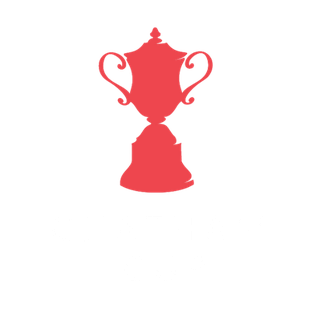Related Research Articles

The Chatham Cup is New Zealand's premier knockout tournament in men's association football. It is held annually, with the final contested in September. The current champions of the Chatham Cup are 2023 winners Christchurch United, who defeated Melville United AFC on penalties in the final.

The Northern League is an amateur New Zealand association football competition. It is a top-tier competition during the winter season, and sits at step two overall.

Christchurch United Football Club is an association football club in Christchurch, New Zealand. They compete in various Mainland Football competitions at Junior and Senior level. The club has won six National League titles and seven Chatham Cup trophies. Christchurch United are the current Southern League champions, Chatham Cup champions and English Cup champions.

Kenneth Armstrong was an English association footballer who represented both England and New Zealand at national level.
The 1970 Chatham Cup was the 43rd annual nationwide knockout football competition in New Zealand.
Max Davis is a former association football player who represented New Zealand at international level.
The 1971 New Zealand National Soccer League was the second season of a nationwide round-robin club competition in New Zealand football. The league was expanded at the end of the inaugural season, so there was no relegation from the 1970 league season. Hungaria, who had competed in the inaugural season, combined with Miramar Rangers to form a new composite league team, Wellington City. Though Miramar withdrew from the team after the 1971 season, the team continued to use the new name.
The 1972 New Zealand National Soccer League was the third season of a nationwide round-robin club competition in New Zealand football.
The 1973 New Zealand National Soccer League was the fourth season of a nationwide round-robin club competition in New Zealand football.
The 1974 New Zealand National Soccer League was the fifth season of a nationwide round-robin club competition in New Zealand football.
The 1976 New Zealand National Soccer League was the seventh season of a nationwide round-robin club competition in New Zealand football.
The 1977 New Zealand National Soccer League was the eighth season of a nationwide round-robin club competition in New Zealand football. An expansion by two teams meant that it was the first year in which twelve teams took part. Prize money was significantly increased for the top three clubs, and the number of teams relegated increased from one to three, these being automatically replaced by the winners of the three regional leagues.
The 1978 New Zealand National Soccer League was the ninth season of a nationwide round-robin club competition in New Zealand football. A change was made from previous years, with the replacement of goal average by goal difference as a means for ranking teams equal on points.
The 1980 New Zealand National Soccer League was the 11th season of a nationwide round-robin club competition in New Zealand football. Mount Wellington became the first club to win back-to-back titles and also the first club to win the league four times, though their winning margin was significantly smaller than in 1979.
The 1981 New Zealand National Soccer League was the 12th season of a nationwide round-robin club competition in New Zealand football. Wellington Diamond United won the league for a second time, having previously been champions in 1976. The league was the closest until this point, with only four points separating the top five teams.
The 1986 New Zealand National Soccer League was the 17th season of a nationwide round-robin club competition in New Zealand football. Mount Wellington finished as champions, one point ahead of Miramar Rangers.
The 1987 New Zealand National Soccer League was the 18th season of a nationwide round-robin club competition in New Zealand football. It was the first season in which 14 teams competed in the league, up from 12 in the previous season, and was also the first season with new sponsors Air New Zealand, leading to it being called the Air New Zealand Soccer League. Christchurch United finished as champions, seven points clear of Gisborne City.
The 1988 New Zealand National Soccer League was the 19th season of a nationwide round-robin club competition in New Zealand football. Christchurch United finished as champions for the second season running, three points clear of traditional rivals Mount Wellington.
The 1989 New Zealand National Soccer League was the 20th season of a nationwide round-robin club competition in New Zealand football. Napier City Rovers had their debut championship win over Mount Maunganui, in doing so taking the title away from the main centres for only the second time.
The 2000 New Zealand National Club Championship, also known, due to naming-rights sponsorship, as the Ansett National Club Championship was the inaugural season of a nationwide club competition in New Zealand football. It replaced the 1999 New Zealand island soccer leagues and was a re-formed version of the national soccer league which had been run from 1970 to 1992. The competition was won by Napier City Rovers.
References
- 1 2 3 4 Hilton, Tony; Smith, Barry (1991). An Association with Soccer: The NZFA Celebrates Its First 100 Years. New Zealand Football. ISBN 978-0473012915.